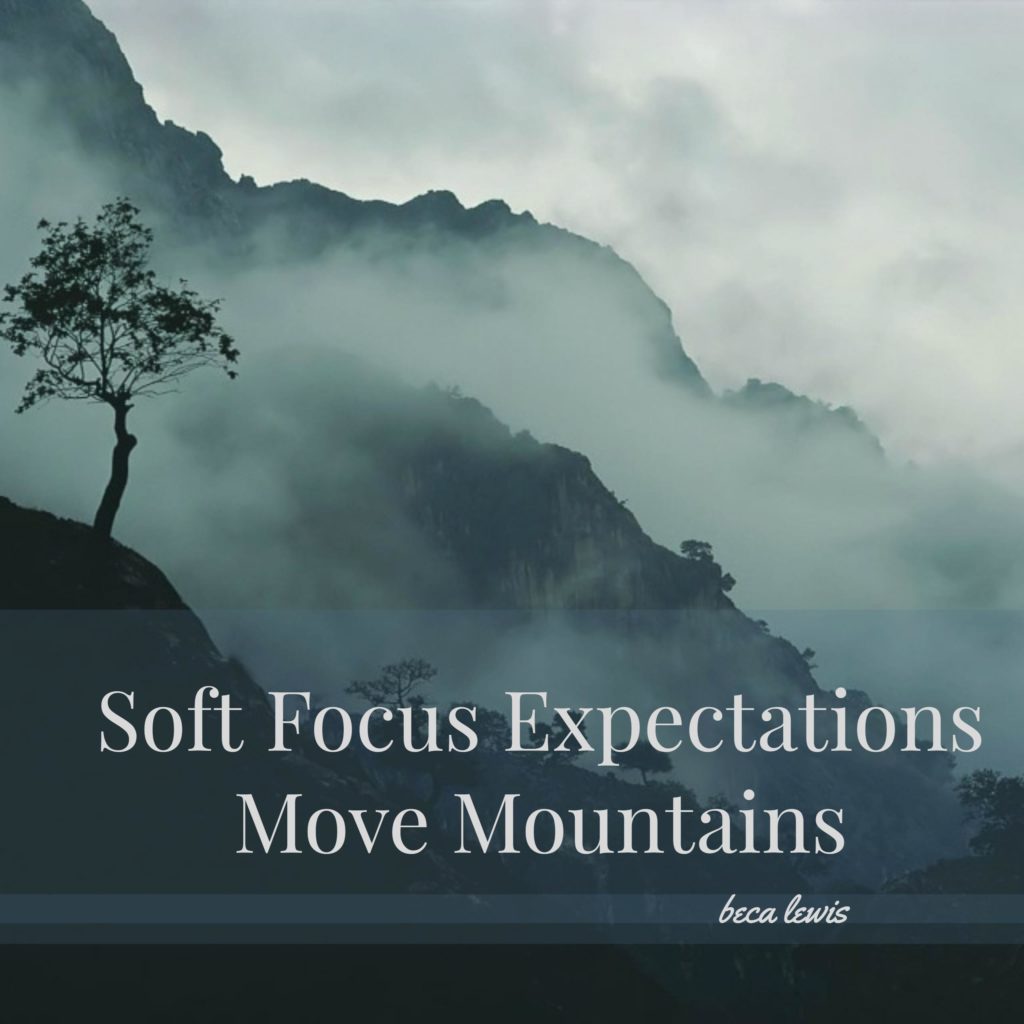 In our get-ahead culture, we expect that all our expectations will be fulfilled.
In our get-ahead culture, we expect that all our expectations will be fulfilled.
Many self-help and new age teachers have given us specific ideas about how to first know what we want, and then what to do to get our desired results. We learn to move towards our desires, or magnetize them to us, and then they will “magically” appear.
And yet, all of us have experienced doing all the right things, thinking the right thoughts, and still nothing remotely matching our expectations appears.
Depending on the circumstances, we feel angry, get depressed, blame God, blame ourselves, or blame others. However, because we are well trained, somewhere in the cycle, we remind ourselves it’s not the falling down that matters, it’s whether, and how, we get up again.
How many times does this method have to fail, before we stop blaming ourselves, and look for a better solution?
I remember when I first read the book, Think and Grow Rich. I loved the idea, and expected that since I already understood that what we perceive is what we get, I would kick-ass with the book. Not. Seriously, not once did all that kind of thinking and hard expectations work for me – at all.
Later, I joined companies where the expectation was to make money by selling services, and being the best in the office. However, I discovered that if I worked from those expectations, I was both miserable, and unsuccessful.
I hated being miserable. Crying in the workplace bathroom because you can’t make enough money to feed your kids and pay the rent was not my idea of being successful.
I knew I had to do something, so I began to change the expectations to ones that I could fully embrace.
I expected to do the right thing. I expected to be exceptionally good at my job because I would learn everything I needed to know to serve my clients to the best of my ability. As a result, I expected to feel good about my work. I expected that this approach would take care of my family’s needs, and I expected that I would be successful in a way that would meet the expectations of my employers.
What I didn’t do was outline how that was going to happen. I didn’t say how much money I would make from a sale, I didn’t decide to be the top sales person. I actually had no idea how it would play out.
It’s what I came to think of as soft focus expectations.
The first time I consciously chose soft focus expectations, I had returned from crying in the bathroom to my cubicle just in time to answer the ringing phone. On the other end of the phone was a woman who had called me a number of times, but never purchased anything from me.
This time, I gathered up my newly found bathroom courage, and chose to do things differently.
I decided I would operate from service. I would find out what she needed, and if I had it, not be afraid of doing the wrong thing, which had so often hampered me in the past. I would help her be clear about what she wanted, and if I had it, let her buy it.
It turned out that her expectations of what she wanted matched perfectly with what I had to offer. The commission from that sale made enough money for months of food and rent, and made my employer happy.
However, the best part was the awareness that this technique actually worked for me. The result far exceeded what I would have expected if I had made a hard expectation list. In fact, I did become the head salesperson, but that never was my specific expectation, so although my employers celebrated the fact, I was simply grateful for the fact that I was learning a softer, but effective, way.
I began to realize that we miss the gifts that are constantly provided for us if we have an expectation of what they will look like, how they will behave, or when they will show up.
I realize that for some people, hard expectations work well, for a while. However, like those commercials that promise health benefits, but quickly rattle off the dire possibilities that may also come from using the product, the use of hard expectations also comes with unwanted outcomes, eventually.
For me, that added another level of my commitment to learn how to let go, and trust there was a much better way.
The first time I read, “Truly I tell you, if you have faith as small as a mustard seed, you can say to this mountain, ‘Move from here to there,’ and it will move. Nothing will be impossible for you,”* I thought it was about hard expectations. I expected that if I really wanted to, I could move mountains.
Now I know it was never about me being able to move mountains. It was about achieving just a tiny grain of faith that the divine Intelligence that governs all details of the Universe with infinite loving precision meets all our needs at all times.
With a soft focus expectation, not only is that easier to see, understand, and live, the outcome always far exceeds expectations. Sometimes even mountains move.
*Bible: Matthew 17:20

 BECA LEWIS coaches, teaches, writes blogs and books, plays with art, and is addicted to reading. She lives in Ohio with her husband and has kids and grandkids scattered across the country.
BECA LEWIS coaches, teaches, writes blogs and books, plays with art, and is addicted to reading. She lives in Ohio with her husband and has kids and grandkids scattered across the country.






